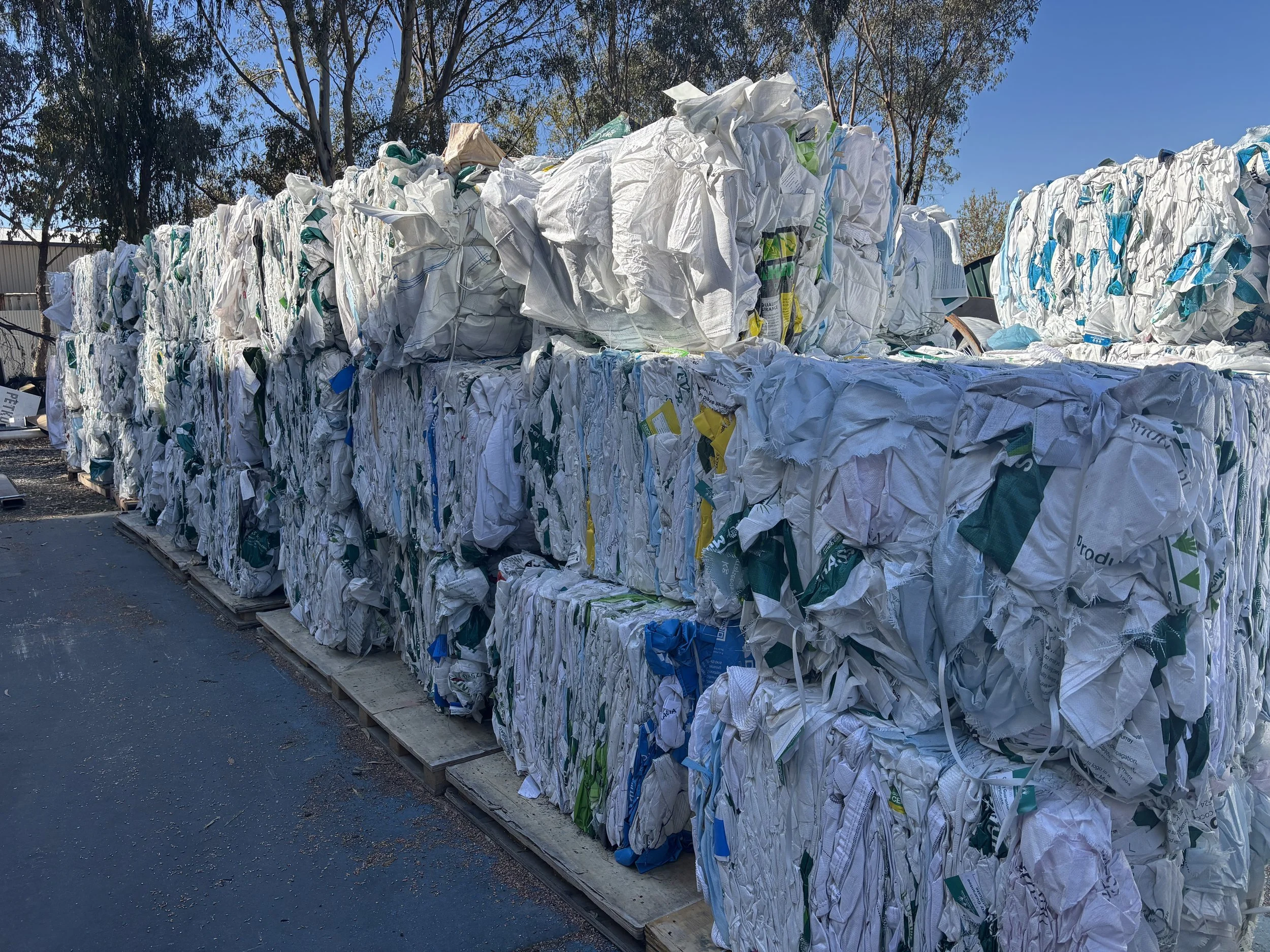bagMUSTER modelling scenario: Baling for impact – reducing transport costs and emissions
In a recent modelling scenario, bagMUSTER examined the benefits of transporting agricultural polypropylene bulk bags in baled form, rather than loosely packed or lightly compressed using wool presses. The results were compelling—baling delivers measurable gains in both efficiency and sustainability.
Efficiency comparison: Griffith to Melbourne (~500 km route)
Loose bags: ~640 per load, 2 tonnes, $4.38 per bag, ~4,412 kg CO₂
Baled bags: ~3,600 per load, 12 tonnes, $0.88 per bag, ~788 kg CO₂
This comparison shows that baling can increase payload fivefold, reduce transport costs per bag by 80%, and cut emissions by more than 80%. For councils, collection sites, and recycling partners, the impact of switching to baling is immediate and significant.
Recycling vs burning: CO₂ impact
Burning 3,600 bags on-farm produces an estimated 37,680 kg of CO₂, compared to just 6,188 kg when recycled. That’s a saving of more than 31 tonnes of emissions per load—equivalent to burning 12,000 litres of diesel or the annual emissions of three average Australian households.
These results highlight how bagMUSTER is delivering scalable environmental benefits, especially in rural and regional areas where responsible plastic disposal has long been a challenge.
Join the movement to reduce emissions and drive down costs in agricultural plastic waste. Discover how your organisation can play a part by visiting the bagMUSTER website or contacting Agsafe to explore partnership or operational opportunities. Let’s bale smarter—for farms, for councils, and for the future.
To learn more about bagMUSTER, head to bagmuster.org.au.

